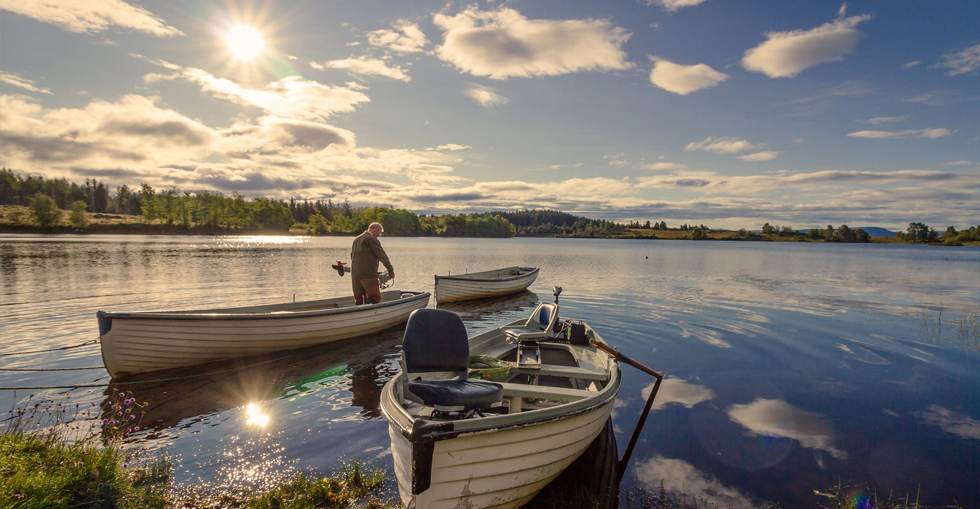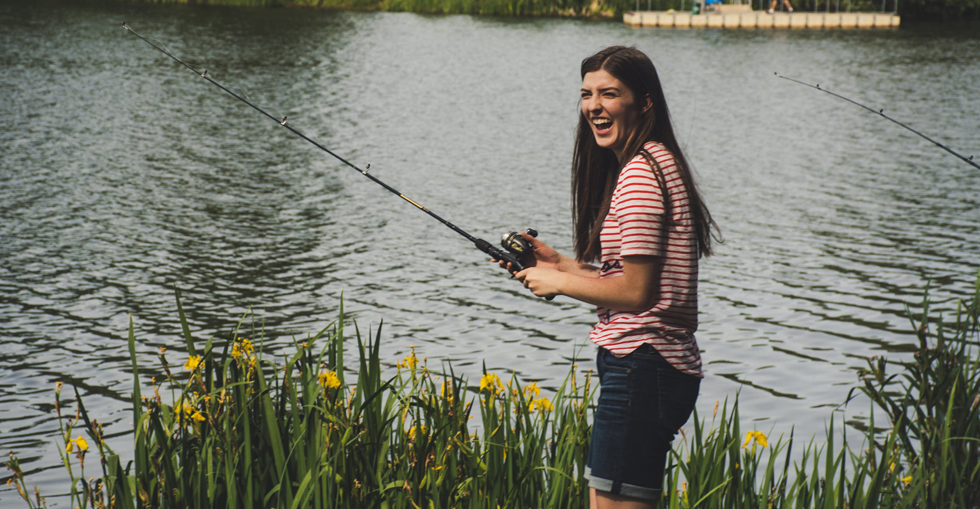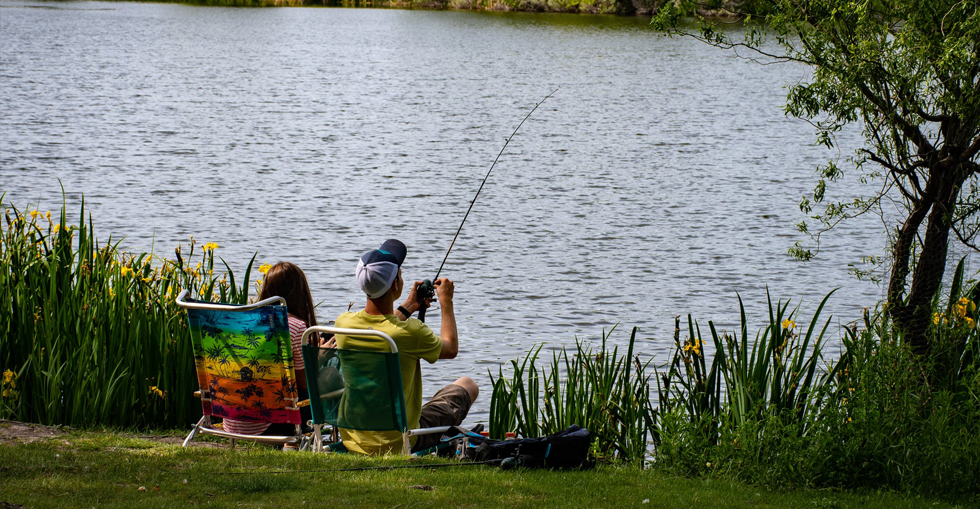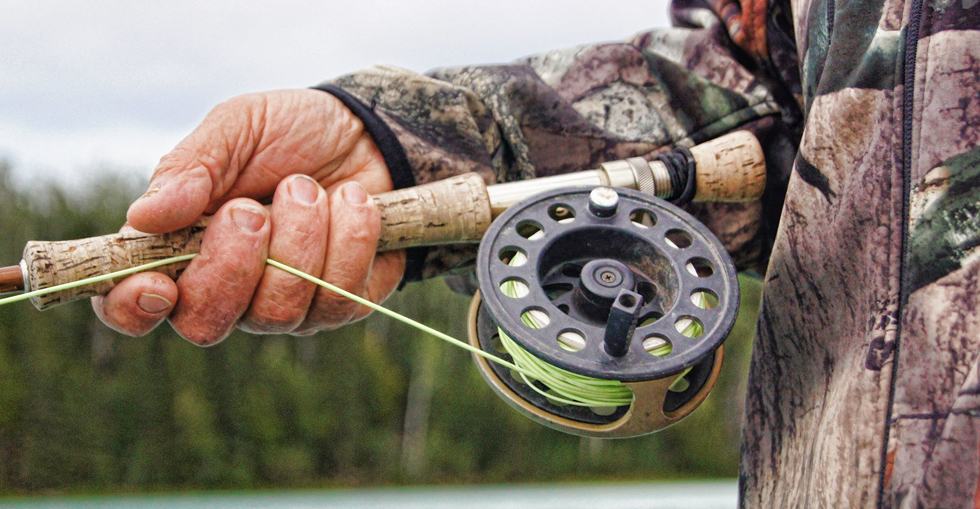Fishing is an ancient pastime turned profitable business sector.
Fishing lakes, or fisheries, can be a lucrative business opportunity for the small business buyer to offer experienced or novice customers the opportunity to fish. Fisheries are based in tranquil locations, often including attached accommodation and retail buildings, making this a lifestyle business that profits from large acreage and good word-of-mouth.
Fishing lake owners are now diversifying into the hospitality sector in line with increased fishing numbers.
This is a tourist industry that is dependent on the weather, with longer light hours during summer providing weekend and evening opening. Farmers with access to water on their land can also create a valuable secondary source of income through fishing.
The rise of ‘Pay to fish’ enterprises providing anglers with controlled access to stocked lakes, generates fishing opportunities outside of permitted seasons and quotas. And with a new focus on inland angling as a moderate exercise with psychological benefits, this is a sector with legs.

The environment
Well-established commercial fisheries now encompass a variety of lake types to appeal to changing appetites. These include fly fishing lakes, coarse and specimen lakes.
The fishing lake sector is one that uniquely spans leisure pursuits and competitive sports. Specimen lakes appeal to competitive anglers and are used by lake owners to generate community buzz about fish quality.
Whereas, for novice customers, variety and a pleasant environment are a must, which means that fisheries now utilise stock ponds to grow coarse fish – non-game freshwater fish (i.e. not trout or salmon) – regularly fished for sport.
Many fisheries make use of an angler’s rest area, teaching classrooms and general facilities buildings.
Toilets are required and on-site shops are common, which provide fishing tackle, as well as drinks and snacks. But for businesses ready to expand, planning permission may still be required for lake enlargement or additional buildings.

Revenue streams
Fishing lakes make their money primarily through day tickets (offering full and half-day options) with further supplemental income coming from tackle shop sales. Keeping up-to-date with fishing trends is important to trade success, as anglers requiring particular breeds will travel far to a fishery with a good reputation.
Conveniently, British fishing lakes benefit from a large variety of fish species including Trout, Carp, Roach and Tench – which can be fished in many different weight classes, a key factor in attracting keen anglers.
UK commercial fisheries usually charge access fees, in contrast to North America, where lake owners usually charge for the fish caught, by length or weight, although some UK fisheries now charge both types of fee.
Competition angling as a business continues to thrive, with coarse lake competitions for angling groups remaining popular.
Some experts or corporate bodies will even pay for exclusive lake usage. Fly fishing also appeals, with fisheries offering ‘catch and release’ or allowing anglers to take one or two fish home.
A desire to attract new custom has led to a rise in fisheries with attached camping fields. And when additional acreage is not being camped on it can be used to create stock ponds to grow the business.
Some scenic fisheries now offer bed and breakfast accommodation opening up a further source of income.
There are also some farms that are offering fishing as an additional source of income. If your farm is able to offer access to water, it can be in your interest to gear up to welcome fishermen onto your land as it can be done with relatively little overhead.

The changing face of fisheries
Government bodies have demonstrated tighter restrictions on access to public waters, a contrast to private fishing lake owners who have full control over who they admit, which has aided sector growth.
The fishing lake sector also now has membership bodies to help lake owners make the most from their businesses.
The Professional Coarse Fisheries Association (or PCFA) helps owners offer sport without ignoring wildlife conservation.
The PCFA helps members obtain substantial discounts on insurance premiums, and is currently working on collating fish requirements with surplus stocks. These types of body help owners protect and improve their investment and build trade partnerships.
Finding the right business will go a long way to securing your future in this sector. When you are looking for the right business to buy, ensure that you have researched thoroughly and checked all the licences and permissions are in order for the business you want to buy.

Current issues
A small business sector dealing with wildlife inevitably encounters a unique set of issues and legislation.
There is a small danger of fishing lakes becoming infected by parasites or diseases. Fish are also at risk from predators, including cormorants, whose numbers have risen in the last thirty years, and otters.
However, the value of fishing to the UK economy has led to the issuing of Environment Agency licences and fencing for dealing with pests without breaching legislation.
Fishing lake owners continue to work together to learn best practice fishery management.
